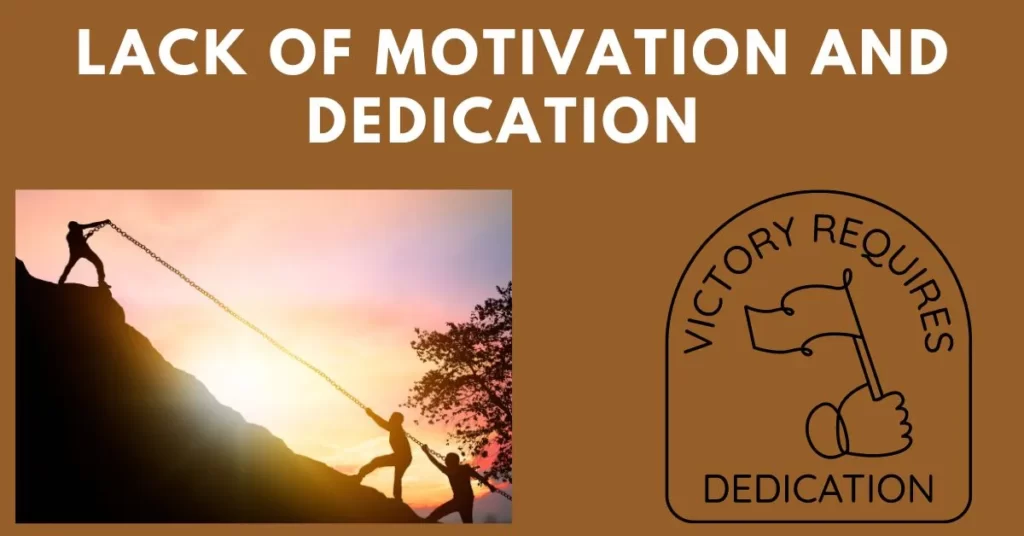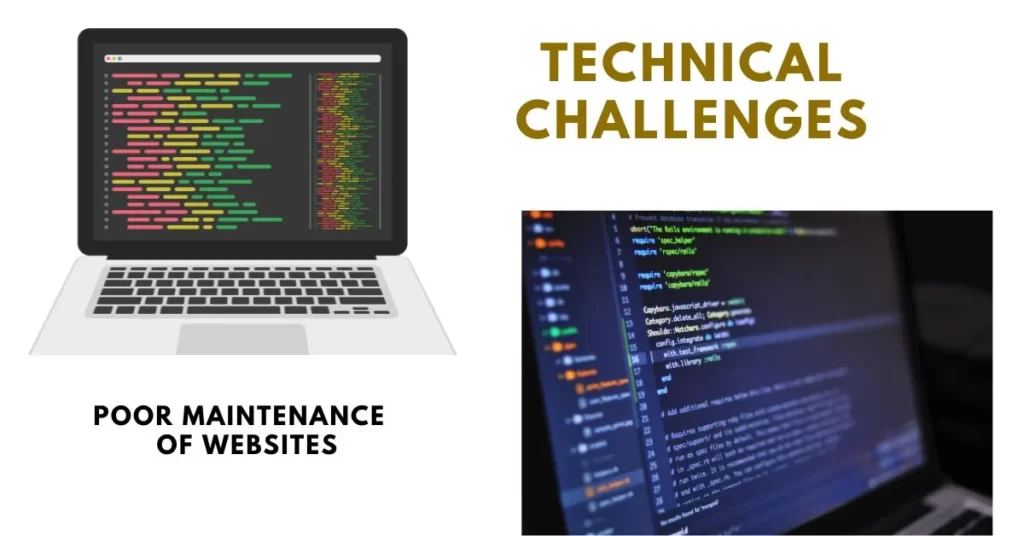
In the vast digital landscape, blogging has been a dynamic force, allowing individuals to express their thoughts, share knowledge, and connect with audiences worldwide.
However, amidst the ever-evolving online sphere, a peculiar phenomenon has emerged people quitting blogging. In this article, the exploration of why do people quit blogging, unravels the unique and often unexpected factors that influence their departure.
Exploring the intricacies behind this decision unveils a compelling narrative, encapsulating the challenges, aspirations, and shifting dynamics within the blogging realm. In this article, the exploration of why people quit blogging unravels the unique and often unexpected factors that influence their departure.
Join us on this journey as we uncover the motivations and unveil the lesser-known complexities behind the act of quitting blogging, shedding light on a phenomenon that shapes the modern digital landscape.
” Here we will learn the reasons why do people quit blogging”
Table of Contents
Lack of Motivation and Dedication

Blogging requires a significant amount of motivation and passion to sustain long-term engagement. Unfortunately, one of the common reasons why people quit blogging is the loss of interest in their chosen niche or topic. Over time, the initial excitement may fade, and bloggers may find themselves struggling to generate new ideas or produce engaging content.
Furthermore, the constant pressure to create content can lead to burnout. Bloggers often feel the need to constantly deliver high-quality posts to keep their readers engaged, which can be mentally and creatively draining. This pressure can make blogging feel more like a chore than a fulfilling creative pursuit.
Consistency is another key factor in blogging success, but maintaining regularity can be challenging. Life’s demands, such as work, family, or personal circumstances, can often take precedence and make it difficult to dedicate enough time and energy to the blog.
In this section, we explore the reasons behind the lack of motivation and passion in blogging. We delve into the phenomenon of losing interest in the chosen niche, the toll of burnout on bloggers, and the struggles of maintaining consistency. Understanding these challenges can help bloggers recognize and address them, enabling them to rediscover their motivation and reignite their passion for blogging.
By addressing the lack of motivation and passion, bloggers can find new sources of inspiration, reevaluate their niche or topic, and redefine their goals to align with their evolving interests. This section aims to provide insights and practical strategies to help bloggers overcome these obstacles and find renewed enthusiasm for their blogging journey.
Unrealistic Expectations
Unrealistic expectations are a significant factor that contributes to people quitting blogging. Many aspiring bloggers enter the blogosphere with grandiose visions of instant success, wealth, and fame. However, the reality of building a successful blog is often quite different.
Frustration can quickly set in when bloggers experience slow progress and a lack of immediate success. It’s important to understand that blogging is a long-term commitment that requires consistent effort and dedication. It takes time to build an audience, establish credibility, and see tangible results.
Moreover, misconceptions about blogging can also lead to disillusionment. Some may believe that blogging is an easy path to quick riches or overnight fame. However, the truth is that successful blogging requires strategic planning, hard work, and continuous learning.

Another common pitfall is comparing oneself to highly successful bloggers. Constantly measuring one’s progress against those who have achieved remarkable success can be demoralizing and make the blogging journey feel inadequate.
In this section, we delve into the unrealistic expectations that often derail bloggers and lead them to quit. We explore the frustrations that arise from slow progress, debunk common misconceptions about blogging, and discuss the negative impact of comparison. By addressing these issues, bloggers can develop a more realistic mindset, set achievable goals, and focus on their individual growth and progress.
Managing expectations is crucial for maintaining long-term motivation and commitment to blogging. By understanding the realities of the journey, bloggers can set realistic goals, celebrate small victories, and find joy in the process rather than being solely fixated on the result. This section aims to provide insights and strategies to help bloggers navigate the challenges of unrealistic expectations and build a sustainable and fulfilling blogging experience.
Time Constraints and Overwhelm
One of the primary reasons why individuals quit blogging is the struggle to manage their time effectively and cope with overwhelming demands. Blogging requires a significant investment of time and effort, and balancing it with other responsibilities can be a daunting task.
Many bloggers find it challenging to juggle their blogging commitments with work, family obligations, and social activities. The limited hours in a day often lead to a sense of overwhelm and can quickly drain one’s motivation and energy.
Consistency plays a crucial role in blogging success, but maintaining a regular posting schedule can be overwhelming. The pressure to consistently create high-quality content, manage social media platforms, respond to comments, and engage with the audience can feel like an uphill battle.
To overcome these challenges, bloggers need to prioritize and manage their time effectively. Developing a well-structured content calendar and scheduling posts in advance can help maintain consistency and alleviate last-minute stress.
Additionally, leveraging automation tools for social media management, setting aside dedicated time for blogging tasks, and establishing boundaries can create a more sustainable workflow.

It’s also essential to recognize the need for self-care and to avoid burnout. Taking breaks, delegating certain tasks, or seeking assistance from virtual assistants or freelance writers can help alleviate the burden of overwhelming responsibilities.
This section explores the time constraints and overwhelms that bloggers often face. We delve into the difficulties of balancing blogging with other commitments, the challenges of maintaining consistency, and the importance of self-care.
By acknowledging these obstacles and implementing effective time management strategies, bloggers can reduce overwhelm, improve productivity, and create a healthier blogging routine.
Finding a balance between blogging and other aspects of life is crucial for long-term sustainability. By implementing time management techniques and establishing boundaries, bloggers can navigate the challenges of time constraints and prevent burnout, ensuring a more enjoyable and fulfilling blogging experience.
This section aims to provide insights and practical strategies to help bloggers overcome these hurdles and find a sustainable rhythm in their blogging journey.
Lack of Support and Engagement
Blogging is not just about creating content; it’s also about building connections and engaging with an audience. However, the absence of support and engagement can be a significant factor in why people quit blogging.
Feeling isolated and lacking interaction with readers and fellow bloggers can diminish the sense of fulfillment that comes from sharing thoughts and experiences. Without feedback, encouragement, and a sense of community, bloggers may question the purpose and value of their efforts.
Engagement goes beyond simply publishing blog posts. It involves actively connecting with readers through comments, responding to their inquiries, and fostering discussions around the topics being covered. However, the lack of reader interaction can make blogging feel like a one-sided conversation, leading to discouragement and a loss of motivation.
Similarly, the absence of support from fellow bloggers can contribute to feelings of isolation. Building relationships within the blogging community is crucial for finding inspiration, exchanging ideas, and receiving guidance. Without a supportive network, bloggers may struggle to overcome challenges and may feel like they are navigating the blogging journey alone.
In this section, we explore the challenges bloggers face regarding support and engagement. We discuss the limited interaction with readers, the impact of the absence of feedback and encouragement, and the importance of building a blogging community.
By recognizing these issues, bloggers can take proactive steps to foster engagement, connect with their audience, and create relationships within the blogging community.
Actively seeking out engagement opportunities, such as posing questions to readers, initiating conversations, and responding to comments, can help create a more interactive and vibrant blog environment. Additionally, participating in blogging communities, attending events, and collaborating with fellow bloggers can provide much-needed support and encouragement to continue the blogging journey.
By nurturing engagement and building a supportive network, bloggers can overcome feelings of isolation and find renewed motivation in their blogging endeavors. This section aims to provide insights and strategies to help bloggers foster support and engagement, creating a more rewarding and connected blogging experience.

Financial Considerations
Financial considerations are a significant factor that can lead people to quit blogging. While some bloggers can monetize their blogs successfully, many struggle to generate consistent income or cover the expenses associated with running a blog.
One of the common challenges bloggers face is the difficulty in monetizing their blogs effectively. Generating revenue through methods such as display advertising, sponsored content, or affiliate marketing requires a strategic approach, a targeted audience, and a considerable amount of traffic.
For bloggers who struggle to attract advertisers or find suitable monetization avenues, the financial returns may not meet their expectations.
Moreover, the costs associated with running a blog can add up. Expenses like domain registration, hosting, premium themes or plugins, marketing tools, and professional services can create financial pressure, especially if the blog is not generating sufficient revenue to cover these costs.
Financial considerations outside of blogging, such as personal or family financial situations, can also influence the decision to quit. Blogging may not be a viable option for individuals who need a more stable and consistent income source to support themselves or their families.

In this section, we explore the financial challenges that bloggers often face. We discuss the difficulties of monetizing a blog, the pressure to generate income, and the expenses associated with running a blog. By addressing these considerations, bloggers can gain a clearer understanding of their financial situation and make informed decisions regarding their blogging journey.
Exploring alternative monetization methods, such as creating and selling digital products or offering consulting services, can provide additional revenue streams. Diversifying income sources can help alleviate the reliance on a single monetization method and increase the chances of financial success.
Additionally, bloggers can assess their expenses and seek cost-effective solutions or alternatives. Researching affordable hosting providers, utilizing free or open-source tools, and prioritizing necessary expenses can help manage financial constraints.
It’s important to remember that building a profitable blog takes time and persistence. Bloggers should focus on providing value to their audience, consistently improving their content and engagement, and exploring different monetization strategies.
By setting realistic expectations and finding creative solutions, bloggers can navigate financial considerations and continue their blogging journey with a greater sense of financial stability and purpose.
This section aims to provide insights and practical strategies to help bloggers address the financial challenges and make informed decisions regarding their blog’s monetization and financial sustainability.
Technical Challenges for Blogging
Technical challenges are a common roadblock that can lead people to quit blogging. The technical aspects of blogging, such as website design, coding, and maintenance, can be intimidating for those without a technical background. Additionally, staying up-to-date with the ever-evolving technology and trends in the blogging world can feel overwhelming.
For aspiring bloggers, the process of setting up a website and navigating the intricacies of content management systems (CMS) or website builders can be daunting. The technical jargon and unfamiliar concepts may discourage individuals from pursuing their blogging goals.
Furthermore, as blogs grow and evolve, technical maintenance becomes essential. Tasks such as updating plugins, optimizing website performance, ensuring security, and troubleshooting technical issues can consume valuable time and energy, particularly for bloggers without a technical background.
In this section, we explore the technical challenges that bloggers often encounter. We discuss the initial setup process, the ongoing maintenance requirements, and the need to stay updated with the latest technology trends. By addressing these challenges, bloggers can gain confidence in managing the technical aspects of their blogs and avoid feeling overwhelmed.

Fortunately, there are resources and solutions available to help bloggers overcome technical hurdles. Online tutorials, forums, and communities can provide guidance and support. Utilizing user-friendly website builders or CMS platforms with intuitive interfaces can simplify the technical process for bloggers with limited technical expertise.
For those who prefer to focus solely on content creation, outsourcing technical tasks to experts or hiring virtual assistants can alleviate the burden of technical maintenance and troubleshooting.
By acquiring basic technical skills and seeking assistance when needed, bloggers can navigate technical challenges more effectively and concentrate on creating valuable content and engaging with their audience.
This section aims to provide insights and practical strategies to help bloggers address technical challenges, acquire necessary skills, and leverage available resources to effectively manage the technical aspects of their blogs.
External Factors
In the vast and ever-expanding blogosphere, external factors can play a pivotal role in shaping a blogger’s experience and, ultimately, their decision to continue or quit. These external influences encompass a wide range of elements, including negative comments and criticism, the competitive nature of the blogging landscape, and the struggle for recognition and visibility.
Negative comments and criticism have the potential to deeply impact a blogger’s motivation and passion. Whether well-intentioned or fueled by malice, these remarks can erode confidence and make bloggers question their abilities. The fear of judgment and the inability to handle criticism effectively can slowly chip away at their enthusiasm, leading some to abandon their blogging aspirations altogether.
Furthermore, the sheer competitiveness within the blogging world can be overwhelming. With countless blogs vying for attention, bloggers often feel the pressure to constantly produce exceptional content, striving to stand out amidst the crowd. The relentless pursuit of uniqueness and the fear of being overshadowed by more successful peers can breed a sense of inadequacy, making it difficult to sustain the drive to continue blogging.
To navigate these external challenges effectively, bloggers need to build a supportive community of like-minded individuals who understand the unique hurdles they face. Surrounding themselves with fellow bloggers who can encourage, constructive feedback, and a sense of camaraderie can be invaluable in bolstering motivation and resilience.
In this section, we aim to provide practical insights and strategies to help bloggers effectively navigate the external challenges they may encounter. By understanding the impact of negative comments, the pressures of competition, and the quest for recognition, bloggers can develop coping mechanisms, maintain their unique voices, and rediscover the intrinsic value and personal fulfillment that blogging can offer
Remember, amidst the ebb and flow of the blogging world, resilience and self-belief can be powerful tools to overcome external obstacles. By addressing these challenges head-on, bloggers can not only thrive in the face of adversity but also find renewed inspiration and purpose in their blogging journey.
Evolving Interests and Priorities
Evolving interests and shifting priorities are factors that can lead people to quit blogging. As individuals grow and change, their passions, hobbies, and goals may undergo transformations, which can impact their commitment to blogging.
Over time, bloggers may find that their interests have shifted away from their chosen niche or topic. This change can create a disconnect and make it challenging to maintain the same level of enthusiasm and authenticity in their content creation. Bloggers may feel a sense of stagnation or disconnection, prompting them to explore new avenues or hobbies that align better with their evolving interests.
In this section, we explore the impact of evolving interests and changing priorities on bloggers. We discuss the challenges of maintaining interest in a chosen niche, the influence of life events on blogging commitment, and the need to align personal growth with blogging goals. By addressing these factors, bloggers can navigate their changing interests and priorities while finding ways to integrate blogging into their evolving lives.
It’s important for bloggers to regularly assess their passions, interests, and goals to ensure they align with their blogging journey. Adapting the blog’s focus, exploring new angles within the niche, or even transitioning to a different topic can help maintain the connection between personal interests and the blogging experience.
Conclusion on “Why do people quit blogging?”
Quitting blogging is a decision that many individuals face along their blogging journey, and understanding the reasons behind it is crucial for both aspiring and established bloggers. Throughout this blog post, we have explored various factors that contribute to people quitting blogging, including burnout, unrealistic expectations, time constraints, lack of support, financial considerations, technical challenges, external factors, and evolving interests and priorities.
Blogging is not without its challenges. It requires dedication, perseverance, and a willingness to adapt to the ever-changing landscape. However, by acknowledging and addressing these challenges, bloggers can develop strategies to overcome them and find renewed motivation and fulfillment in their blogging endeavors.
First and foremost, bloggers must prioritize self-care and avoid burnout. Establishing boundaries, taking breaks, and seeking support are essential for maintaining long-term blogging commitment. By finding a balance between blogging and other aspects of life, bloggers can ensure that their passion for blogging remains sustainable and enjoyable.
Financial considerations and technical challenges can also be significant roadblocks for bloggers. By exploring different monetization strategies, managing expenses, acquiring basic technical skills, and utilizing available resources, bloggers can navigate these hurdles more effectively and create a more sustainable blogging environment.
Lastly, acknowledging the impact of external factors and the potential for evolving interests and priorities is crucial. By developing resilience, focusing on personal growth, and aligning blogging with changing passions and goals, bloggers can adapt and find fulfillment in their blogging journey.
Ultimately, the decision to quit blogging is a personal one, influenced by a variety of factors. However, by addressing these factors and implementing strategies to overcome challenges, bloggers can increase their chances of sustaining their passion, creating valuable content, and finding long-term success in the ever-evolving world of blogging.
Remember, blogging is a journey, and each blogger’s path is unique. By staying true to your passions, embracing the ups and downs, and continuously learning and adapting, you can find your fulfillment and make a lasting impact through your blog. So, stay inspired, persevere through the challenges, and keep sharing your voice with the world. Happy blogging!

